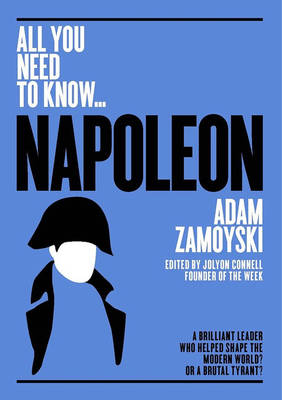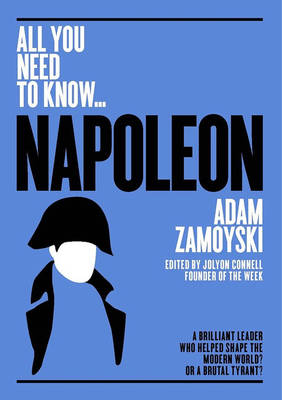
- Afhalen na 1 uur in een winkel met voorraad
- Gratis thuislevering in België vanaf € 30
- Ruim aanbod met 7 miljoen producten
- Afhalen na 1 uur in een winkel met voorraad
- Gratis thuislevering in België vanaf € 30
- Ruim aanbod met 7 miljoen producten
Zoeken
€ 13,95
+ 27 punten
Uitvoering
Omschrijving
Born in Corsica, and a brilliant military leader during the French revolution, Napoleon became Emperor in 1804 and dominated European and indeed global affairs for the next ten years, leading France against a series of coalitions in what were later called the Napoleonic wars. His victories are the stuff of legend, as is his famous invasion of Russia in 1812, disastrous and shattering retreat from Moscow two years later, and final defeat by Britain and its allies at Waterloo in 1815. So how great a military leader was Napoleon? And how skilled a political operator? Why are his relationships with women, and especially his Empress, Josephine, so famous? And what of his legacy - in particular, how important was the so-called Napoleonic Code? "The ideas that underpin our modern world--meritocracy, equality before the law, property rights, religious toleration, modern secular education, sound finances, and so on--were championed, consolidated, codified and geographically extended by Napoleon," says Andrew Roberts. "To them he added a rational and efficient local administration, an end to rural banditry, the encouragement of science and the arts, the abolition of feudalism and the greatest codification of laws since the fall of the Roman Empie." Zamoyski assesses this verdict of Napoleon and gives his own view of the greatness and legacy of one of history's most compelling figures.
Specificaties
Betrokkenen
- Auteur(s):
- Uitgeverij:
Inhoud
- Aantal bladzijden:
- 128
- Taal:
- Engels
- Reeks:
Eigenschappen
- Productcode (EAN):
- 9781912568017
- Verschijningsdatum:
- 22/01/2019
- Uitvoering:
- Paperback
- Formaat:
- Trade paperback (VS)
- Afmetingen:
- 211 mm x 147 mm
- Gewicht:
- 276 g

Alleen bij Standaard Boekhandel
+ 27 punten op je klantenkaart van Standaard Boekhandel
Beoordelingen
We publiceren alleen reviews die voldoen aan de voorwaarden voor reviews. Bekijk onze voorwaarden voor reviews.











